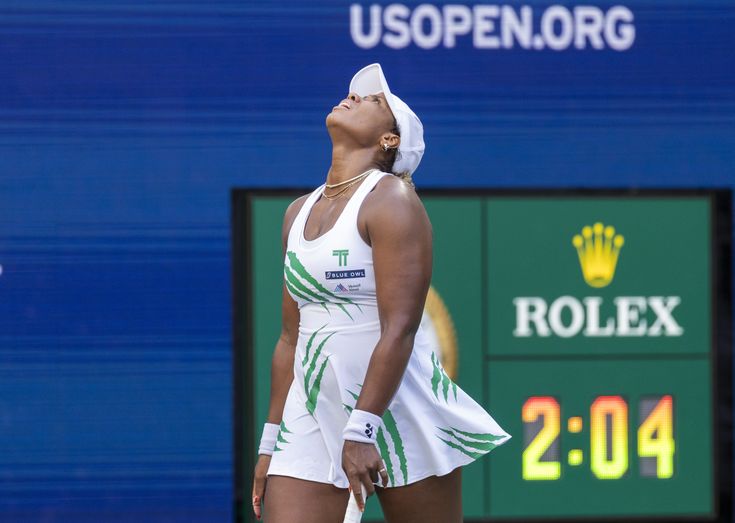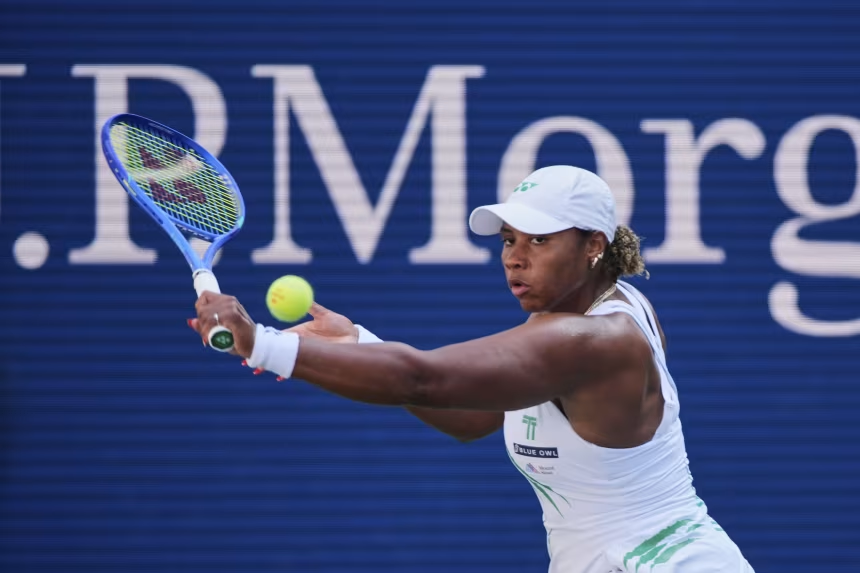Taylor Townsend Apology for Chinese Food Comments has made headlines worldwide after the American tennis star faced backlash over remarks about traditional Chinese dishes while in Shenzhen for the Billie Jean King Cup Finals.
The 29-year-old world No. 1 women’s doubles player posted several videos to her Instagram Story where she expressed surprise — and apparent disgust — at some of the local dishes she saw on the menu. Among the traditional foods she highlighted were turtle, bullfrogs, and sea cucumber.
In one post, she wrote:
“This is the craziest thing I’ve ever seen… and people eating this.”
In another, she captioned a photo of the menu:
“Imma have to talk to HR… because what the hell… turtle and bull frog is wild.”
These comments, while perhaps intended humorously, sparked an immediate wave of criticism, especially on Chinese social media platform Weibo, where the hashtag “American tennis player criticizes Chinese food” quickly went viral.
Backlash on Chinese Social Media
The reaction online was swift and pointed. Many users viewed her comments as disrespectful toward Chinese culture.
One popular comment on Weibo said:
“It’s normal not to eat offal, bullfrogs, turtles. As a Chinese, I don’t eat these either, but you have to show respect. Just because you don’t like them doesn’t mean everyone feels the same.”
Another comment accused Townsend of harboring bias:
“This feels like prejudice and discrimination. Athletes traveling abroad should understand the importance of respecting local traditions.”
This backlash quickly gained traction, forcing Townsend to address the controversy.
Taylor Townsend Issues Public Apology
In response to the uproar, Townsend posted a video apology on Instagram. She acknowledged that her comments were out of line and pledged to do better in the future:
“I understand that I am so privileged as a professional athlete to be able to travel all around the world and experience cultural differences, which is one of the things I love so much about what I do. The things that I said were not representative of that at all and I just truly wanted to apologize. There is no excuse, there is no words. For me, I will be better.”
Her apology appeared sincere and was received positively by some, though others argued that the harm had already been done.

The Importance of Cultural Sensitivity in Global Sports
Townsend’s situation highlights a recurring theme in international sports: cultural sensitivity. Top athletes regularly travel to different countries, where they are not just competitors but also representatives of their home nations.
Incidents like this show how a casual remark or joke — especially when shared on social media — can quickly escalate into an international controversy. Athletes today have to balance authenticity with diplomacy, as their words carry significant weight beyond the court.
Experts in sports communication have pointed out that athletes are increasingly expected to act as global ambassadors. Townsend’s apology is a recognition of this responsibility.
Taylor Townsend’s Career and Recent Headlines
Taylor Townsend is currently ranked No. 1 in women’s doubles and has been having a strong season on the WTA Tour. Her powerful game and comeback story have made her a fan favorite, especially in the U.S.
However, this controversy is not the first time Townsend has made headlines for off-court incidents. Just last month at the US Open, she had a heated exchange with Jelena Ostapenko after a contentious match. Ostapenko criticized Townsend, saying she had “no class” and “no education,” comments she later apologized for.
Now, Townsend is back in the spotlight — this time for a cultural issue — as she represents the U.S. team in the Billie Jean King Cup Finals. She is set to play in the quarterfinal against Kazakhstan this week, where fans and commentators will be watching to see how she responds to this latest controversy on and off the court.
Public Reaction to the Apology
Social media remains divided on whether Townsend’s apology was sufficient. Some praised her for taking responsibility and issuing a quick, heartfelt response. Others felt she could have gone further in showing respect for Chinese culinary traditions.
Supporters argue that Townsend’s comments were a moment of culture shock rather than intentional malice, and that her willingness to apologize shows maturity. Critics, however, see the incident as part of a larger pattern of Western insensitivity toward non-Western food traditions.
What This Means for Athletes Going Forward
The Taylor Townsend Chinese food comments controversy is a reminder of the global scrutiny athletes face today. Even a brief Instagram post can become a trending topic and spark international debate.
For athletes, the lesson is clear: social media is a powerful tool, but it can also amplify missteps. Cultural respect and awareness are now essential parts of being a public figure in sports.
Conclusion
Taylor Townsend’s apology may help put the controversy behind her, but it also raises important questions about cultural understanding, representation, and the responsibility of athletes in the public eye. As she continues her campaign in the Billie Jean King Cup Finals, she will have the opportunity to shift the conversation back to her performance — and perhaps demonstrate that she has learned from this experience.
Source: CNN



